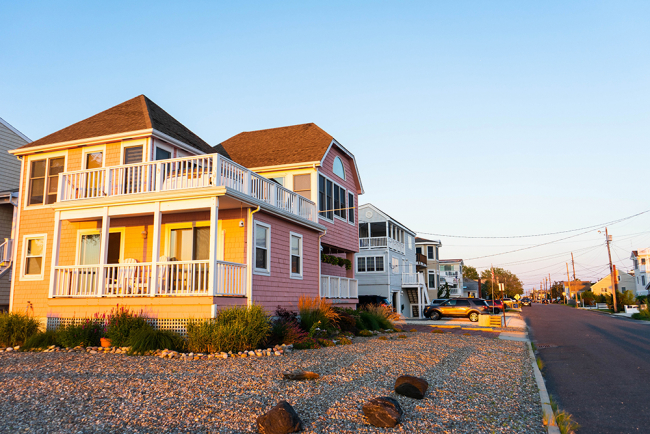BLOG
Does a Second Home, or Vacation Home, Qualify for a 1031 Exchange?

Taxpayers often ask whether they can sell their vacation/second homes as part of a 1031 exchange. The short answer is that if the property was used exclusively as a vacation or second home, it cannot be sold as part of a 1031 exchange. There are, however, limited circumstances under which a vacation/second home can be included in a 1031 exchange.
Snapshot of IRC § 1031
First, a quick review of the rules for a valid 1031 exchange. Internal Revenue Code Section 1031 says that when real property that was held for productive use in a trade or business or for investment is exchanged for other real property that will be held for productive use in a trade or business or for investment, the taxpayer does not recognize the capital gains on the sale of the original property. The key words here are “productive use in a trade or business or for investment.” Your vacation home or second home is neither held for productive use in a trade or business nor for investment.
Some might argue that acquiring a vacation/second home is an investment, as the property is expected to appreciate over time. However, a variety of court cases have held that hoping for appreciation on a property that was used exclusively by the taxpayer does not meet the definition of an investment property. Some commentators suggest that an easy way to determine if a property was held for productive use in a trade or business or for investment is to look to see if the property was reflected on Schedule E of the taxpayer’s federal income tax return. Schedule E is used to reflect income from rental real estate, among other things. The argument is that if the property was not reflected on Schedule E, then it is probably not an investment property, and a 1031 exchange involving that property would likely fail on audit.
IRS Guidance on Vacation/Second Homes
The IRS has given us additional guidance regarding vacation/second homes in the form of Revenue Procedure 2008-16. The Service specifically noted that some taxpayers hold property for rental purposes and also make periodic personal use of those properties. The Revenue Procedure specifically provides that the property (a) must have been owned by the taxpayer for at least 24 months prior to the 1031 exchange, (b) during each 12 month period prior to the sale, the property must have been rented for a minimum of 14 days, and (c) the taxpayer’s use of the property must not exceed 14 days, or 10% of the time that it was rented, whichever is greater.
Let’s look at a few scenarios and whether they would qualify for a 1031 Exchange:
- A taxpayer has used the properly exclusively as a vacation/second home - it will not qualify under the Revenue Procedure.
- A taxpayer rents the property for 14 days but makes personal use of the property for more than 14 days - it will not qualify for 1031 exchange treatment.
- A taxpayer rents the property for all of May through August (123 days) and makes personal use of the property for more than 14 days - it will still not qualify for 1031 exchange treatment.
- A taxpayer rents the property for all of January through June (180 days) and makes personal use of the property for 17 days - it will qualify for a 1031 exchange, because the taxpayer used the property less than 10% of the time it was rented.
Additionally, it would be prudent that any rental of the property be at fair market value, and that the income from the rent be reflected on the taxpayer’s tax return (Schedule E).
The bottom line is that second homes, or vacation homes, are not considered investment use property solely based upon the hope the property will appreciate and in order for a valid 1031 Exchange certain requirements must be met. Any taxpayers contemplating a 1031 exchange with a vacation/second home should consult with their tax or legal advisors before contacting the 1031 exchange company.

